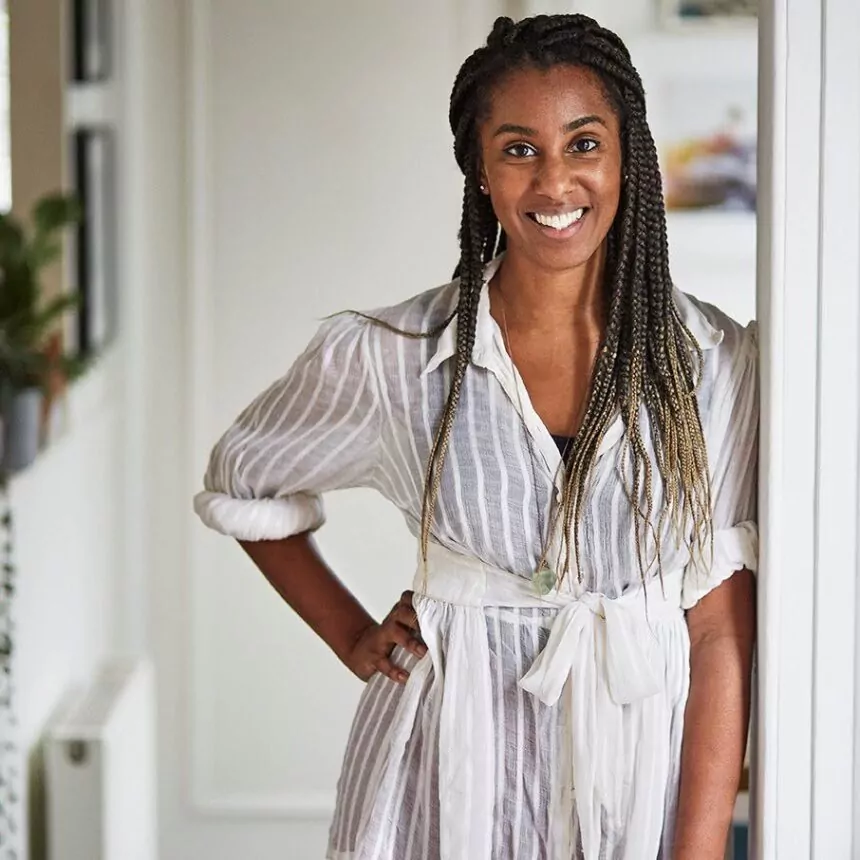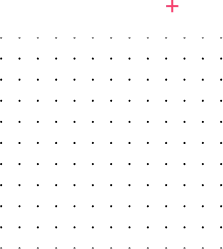Impact Innovators in the Zinc Ecosystem: Anthea Stephenson, founder at willow

Anthea Stephenson is a founder from Zinc’s fifth Venture Builder, which brought together 65 individuals committed to transforming the industries with the most damaging impact on the environment.
Anthea is the founder of willow, a pioneering startup building a platform for value chain collaboration to reform agricultural supply chains, making them both regenerative and equitable.
What did your career path look like prior to joining Zinc?
My ongoing interest in systems thinking, nurtured during my studies in Politics, Philosophy & Economics, really laid the foundation for my career. After university, I initially went into Financial Services IT as a headhunter to build my commercial skills. However, driven by a desire to be more tangibly connected to physical and natural things, I changed careers and moved into the food industry in my mid-20s. From working in Michelin-starred kitchens to launching Wild Radish, a novel recipe box business, and ultimately founding willow, my journey has been fueled by a respect for the origin of our food and a need for harmonious coexistence with nature. As I explored these interconnected systems, the effects of climate change on our food sources and the cultivating communities really came into focus. Through Wild Radish, I aimed to shift dietary habits and foster demand for sustainably farmed produce. However, I soon recognised that substantial, systemic change required an overhaul throughout the food value chain, especially within major food corporations. Seeing an opportunity to apply my systems thinking to this challenge, I leveraged Zinc’s B2B climate focus to create something within the agri-food sector that could affect significant, broad-based change
Did the entrepreneurial path feel risky to you?
It actually felt quite natural in some ways. I’m driven by learning and development and enjoy navigating the complexities of building something new and making it happen. Being comfortable with uncertainty makes me adaptable and allows me to thrive even amidst the unknowns. I also loved my time as a chef – it was a high-intensity and profoundly satisfying experience, a sentiment many creatives can relate to. This, along with a desire to leverage experiences from other facets of my education and career, led me to willow which feels like an organic next step.
What excited you about the Zinc venture builder?
A couple of things that stood out for me.
Firstly, I loved the fact that Zinc’s Venture Builder is so mission focused, and is about large-scale impact. I knew everyone I met would be of the same mindset. We all wanted to solve big problems in broadly the same space. It’s such a unique environment and I found that really compelling. It was also a bit daunting initially. I think everyone had a sense of imposter syndrome early on, then eventually we realised we’re all just passionate wanting to make a difference.
Secondly, they were looking for people with a deep passion and drive to come in pre-solution, learn very quickly and execute, and offered a bit of cash to support the process – this felt like such a great opportunity. It de-risked the challenge of really understanding the needs of the sector on an intellectual and human level, rather than having to dive straight into building and trying to sell something.
How have you used the Zinc network of Fellows, advisors, experts and coaches?
I think I’ve used them in every way possible! Early on it was more unstructured, we had so many amazing resources at our disposal and it was a great opportunity to learn, bounce ideas around and get feedback. As I’ve moved from the Venture Builder to the Accelerate phase, I use the support of Fellows and investors in a much more strategic way, identifying gaps in my knowledge and finding specific people who can help me fill them. That support takes many forms: it could be either a quick conversation, an introduction, a deep-dive workshop in a specific area, a more formal advisory role, or building those critical investor relationships.
What has surprised you most on your founder journey so far?
Lately, the nicest surprise has been just how excited and enthusiastic people are when I talk about willow’s vision and the route we are taking to get there. Its mission is a really meaningful, personal journey for me, so getting positive feedback is really encouraging and motivational.
What are you most proud of on this journey so far?
Successfully making it through the Zinc investment committee and securing investment was a huge moment. It meant I was able to take willow from idea to reality. Without that funding it wouldn’t have been possible to get to where we are today: with a growing pipeline of excited potential customers who share our vision and want to be part of co-creating the product together.
What have been some of your biggest challenges as a founder so far?
Agrifood is a huge space, with lots of stakeholders and interconnected challenges. Navigating that complexity, understanding the nuances and dependencies, but then zooming in and focusing has been tricky. It’s taken a lot of effort to distil learnings and focus on a specific big problem, that both aligns with our vision and that customers will pay for. There has also been a learning curve around being able to tell a compelling story and why it matters, to different audiences. On a personal level, it has been a challenge to navigate having a co-founder leave: going from being a team to working solo has meant I’ve needed to recalibrate and really focus to keep everything moving forward at pace. And finally, from a speed of execution perspective, summer has been hard: customers and investors are slowing down for holidays while I am ready to move quickly.
What keeps you motivated through the really hard days?
I have lots of really brilliant friends. They’re incredibly supportive and I’m grateful to be able to lean on them, reflect and talk things through. On this journey it’s easy to slip into feeling like everything is very serious, so they also remind me to be silly and have some fun. My partner also supported me greatly through some of the darker days. The Zinc Accelerate community has also been great; being alongside other founders at the same stage, solving big problems in a similar space. I really value being part of such a motivated, supportive group, that also allows me space to be authentically myself.
Looking back on your Zinc founder journey so far, is there anything you would have done differently?
With hindsight, I think I could have had more confidence in myself and conviction in my thinking earlier on. Generally my instincts are very strong. On reflection there are very few things I had strong early conviction on that were way off the mark. If I could go back, I’d trust myself more.
What are you currently excited about?
Right now I’m excited about converting some of the champions from our workshops into paying customers and going on this journey together. I’m really energised by the prospect of formalising the relationships to co-create something that is going to be really impactful and really needed. I’m excited because they are excited, it’s a great feedback loop!
Looking 10 years ahead, what impact do you hope to have had?
One of willow’s cornerstone values is tied to speed of action. We recognise that climate targets are set for 2030 for a reason. It’s not arbitrary, it’s tied to science, so that’s our timeframe for thinking about impact. We want to be able to facilitate food businesses to move faster toward hitting their climate goals. To do that we are solving the problem of how to connect long term thinking with specific short term actions. We want to be able to show the long-term, de-risked financial upside of investing in their supply base and farms at source, now. We believe this transition can happen with everyone along the value chain being incentivised to take action, including farmers being paid a fair price.
Who or what inspires you on this journey?
There are so many people I’ve come across at various points that have inspired me. Broadly, anyone who has been in the climate or sustainability space, and more specifically people doing that in the agriculture or food spaces, for more than 10 years is right up there for me. These worlds have historically been moving very slowly and the people doing the heavy lifting over a sustained period of time are heroes. They have laid a lot of groundwork for all of the newcomers to the mission, who are taking on the baton and building on that momentum. It takes an incredible amount of resilience to fight this fight over a sustained period of time, and that is hugely inspiring. I’m fortunate that I get to speak to a handful of these people on a regular basis.
Do you have any favourite resources, tools or communities for support and advice as a founder?
I really love Medium as a resource. I constantly get served lots of high quality, very relevant content. It must have a great algorithm because it seems like it can read my mind and knows exactly what I need to be reading. Then network-wise, the Zinc community is excellent to lean into. It’s very human and incredibly uplifting and supportive.
What is your current top priority? And do you have any asks of the Zinc network?
Our current focus is on converting our product champions into paying customers, which I’m very confident we will do. In terms of an ask, we’re always keen for introductions to people working in businesses that have an active interest in nature positive solutions, supporting their producers at source through value chain alignment and closer relationships, and enabling agricultural change.
Finally, what advice would you give to someone considering joining the next Zinc mission?
Think about where you are on your personal journey. Think about your personal “why”. Does the Zinc platform take you closer to creating the change you want to see in the world? These mission spaces like climate and health are really hard to tackle. Do you want to do that as a founder? If the answer is yes to these questions, then do it. There is nothing to lose and a lot to gain. Be honest with yourself about what feels authentic to you and trust your gut.
If you’re interested in getting involved in Zinc’s next Venture Builder focused on Improving the Health of People and the Planet, find out more here
Join the Zinc community
Stay up to date with all Zinc updates and future posts as part of our fast growing community.
Featured Resources
Impact Report 2023
We started Zinc with the hypothesis that missions are an effective way to attract highly ambitious, talented and experienced groups of innovators, who might not recognise themselves as “classic entrepreneurs” but are ready and able to start a new commercial and successful venture to tackle some of our most pressing societal issues.
The world has overcome the sorts of challenges we face today when it has adopted a mission-based approach to the biggest problems and brought together world-class talent to invent and innovate, e.g: NASA and landing a man on the moon, the LSE blueprinting the British welfare state, or the Gates Foundation aiming to eradicate diseases.
On this basis and assumption, we designed Zinc as a new mission-based Venture Builder — a place where global talent, ‘impact makers’, can join to experiment and develop new solutions to our most pressing societal issues.
To Eliminate Environmental Threats to Our Health
Environmental health threats pose a grave danger to human health and well-being, causing suffering to individuals and communities worldwide. These threats, which include chemical pollution, climate change, and biological hazards, cause acute and chronic diseases and exacerbate existing health conditions.
To protect those we care about, we must tackle the causes of environmental degradation, shield people from the consequences of environmental harm, and, where protection fails, we must mitigate the health impacts they suffer.
This demands action to improve all aspects of our environment: soil, food, air, water, and the built environment. It requires us to focus on every aspect of human health to reduce suffering.
Entrepreneurship and technology are powerful means to tackle these challenges. That’s why we are backing 70 founders to build innovative companies addressing this mission.


